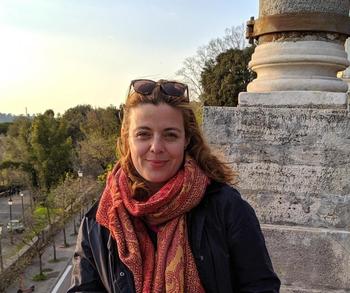Dr. Joana van de Löcht

Fellow in the project "Epochal Lifeworlds: Narratives of Crisis and Change"
Short Biography
After a Bachelor's degree in Near Eastern Archaeology and Assyriology and a Master's degree in Edition Studies and Textual Criticism, Joana van de Löcht wrote a dissertation on Ernst Jünger's diaries of the Second World War at the University of Heidelberg, which was published in 2018. She collaborated in various edition projects and has been a research assistant at the Institute of German Studies at WWU Münster since April 2021. Her work focuses on literature of the early modern period and the 20th century, and on the field of edition philology. Currently, she is particularly interested in the historical dimensions of the Environmental Humanities.
Project
Traces of the Little Ice Age in Early Modern German LiteraturThe aim of the project is to examine the different effects of the Little Ice Age on the literature of the early modern period. The research subject 'Little Ice Age' has been a topic of historical climate research since the second half of the 20th century and among historians since the end of the 1980s. The written tradition is primarily considered to have a source value for determining concrete historical weather events. Literary studies has so far only rudimentarily fulfilled its task of describing these sources in their poetic texture and locating them in contemporary literary discourse.
The linking of environmental issues with concepts of time and order in early modern literature is guided by the basic assumption that, although we cannot expect knowledge of climate change in the texts of the sixteenth to eighteenth centuries, changing environmental conditions were perceived as a threat to the established order and as such found their way into literature. Concepts of time such as the cyclical course of the harvest year and the near expectation of the end times are just as affected by this as concepts of rule and orders of knowledge. This leads, on the one hand, to the prosperity of order-giving forms of publication such as the calendar and its associated prognostics or the literature of house fathers, and, on the other hand, to the attempt to reorganise knowledge (for example in René Descartes' writing "Les Météores"). The individual events such as floods, hailstorms, crop failures and extreme winters are initially reflected in the establishing news systems of pamphlets and (towards the end of the period under study) journal literature. Occasional poetry also reacts to the specific event and links this to established narratives of God's judgement and the idea of a natura lapsa, in which man's sinfulness is linked to the state of the world around him.
